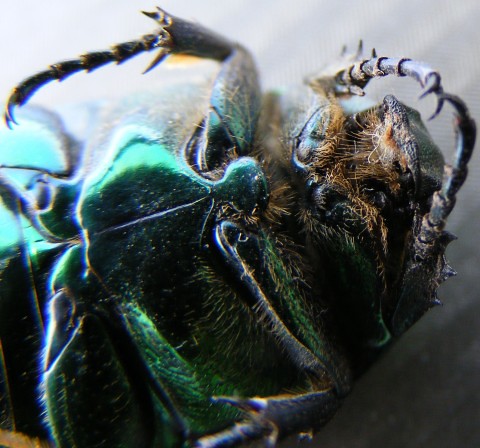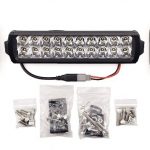Growing up, my bedroom was in a finished basement that was particularly prone to spiders. Or so it seemed to someone like me who is deathly afraid of the eight-legged creatures. Every winter my mom would say, “Oh now, don’t worry, they’re all dying now!” And I’d come back with, “Not so! They’re all coming inside to get away from the cold!”
Guess who was right? ME. I do love being right. Even when it concerns dreaded bugs.
While we all loved watching the Virginia Creeper turn brilliant red, orange, and yellow during the fall months, it also signaled the time when those hated bugs decided to find refuge from the coming cold inside my warm, basement bedroom.
Even here, in our newer home with fewer leaks than that old rambler I grew up in, we notice an increase in pests showing up in our basement come fall as well. Fall pest-proofing is important in keeping pests from making their home in yours.
In addition to the creepy / gross factor, pests can cause real damage to a home:
- Rodents carry diseases that can harm humans, and their little teeth and claws can cause structural damage to your home by gnawing through walls, insulation, and wires. They can cause house fires, and unpleasant smells. Don’t forget also, that they breed like crazy. A male and a female nesting in your insulation will quickly result in hundreds more.
- Cockroaches spread disease through their droppings and their ‘dander’ or saliva can trigger allergic reactions and asthma attacks.
- Thanks to our freezing witners up here, we don’t have cockroaches, but what we do have are spiders. Most spiders are harmless, but Brown Recluse spiders and Black Widows are common. They’ll bite and inject venom that can be very dangerous, especially to small children.
- Other bugs like earwigs, centipedes, and millipedes provide food for the other pests above, and earwigs can give a painful pinch. These too can form colonies and infestations.
How can we be proactive and vigilant at preventing pests from seeking our warm, comfortable havens?
Pest Proofing Tips
- Install door sweeps on exterior doors and repair damaged screens.
- Install screens over vents and chimney openings.
- Seal cracks and crevices outside, especially where pipes enter.
- Take care to handle and store food properly.
- A clean home is less welcoming to pests. Less things to eat, less places to hide. Sweep up, mop up, and clean up regularly! Inside and out.
- Replace loose mortar and weather stripping around the basement foundation and windows.
- Eliminate moisture, including leaking pipes and clogged drains.
- Store firewood at least 20 feet away from the house – Black Widows and rodents love to nest in wood piles.
- If you suspect a pest infestation in your home, contact a licensed pest professional to inspect, identify and treat the problem.
Part of our tongue-in-cheek prenuptial agreement was regular pest control. I did not want any of my children to fear the basement due to spiders and bugs. A local guy comes out in the spring, and again in the fall, to spray the foundation, windows, doors, and other ‘entry points’ with pesticide. We keep the dogs and kids out of it until it dries, and enjoy a mostly-pest free home the rest of the year. I’ll admit to squealing now and then when an earwig or small spider startles me, but I’ve found a toilet brush scrubber is a handy killing-tool for the squeamish. Those bristles grind up the bug at the end of a long handle (for safety, of course!), and then you can bang the bug body into the toilet and flush it away.







